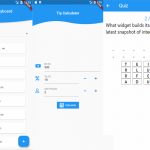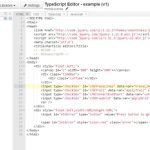SQLite is an open-source, relational database management system that does not require a separate server. It is one of the most popular forms of internal database systems on the web today.
Table of Contents
Tutorials and Courses
- SQLite Tutorials – These cover the basics of SQLite programming, including creating databases, executing SQLite commands and queries, and creating stored procedures and triggers. The tutorial also provides detailed instructions on how to use the SQLite API to perform various SQLite operations. Throughout the tutorial, examples are provided to illustrate how the concepts can be applied in real-world scenarios. It also includes tutorials and libraries to connect SQLite with other programming languages.
- Tutorialspoint – Tutorialspoint offers a tutorial designed for beginners to gain a basic understanding of the concepts associated with the SQLite Database Engine. This tutorial will focus on the fundamentals of the SQLite engine and will cover topics ranging from basic installation and setup to more advanced functions and processes. Through this tutorial, readers will gain an understanding of how to install, configure, and use the SQLite engine to store data and interact with databases.
- JavaTPoint – SQLite Tutorial from JavaTPoint provides comprehensive information about the basics and advanced concepts of the SQLite database. It is suitable for both beginners and experienced users, as it covers topics from the very basics of SQLite to more complex topics such as triggers, views, and indexes. The tutorial also includes code examples and step-by-step instructions to help users understand the concepts better.
- Intro To SQLite Databases for Python Programming – In this course, you will be introduced to the fundamentals of using SQLite databases with Python. You will learn how to install Python, SQLite, Sublime Text, and Git Bash, and how to use them to create a database and table. You will also understand how to use Python to put data into the database, take data out, update and delete data, and explore the contents of the database. Finally, you will learn how to create basic reports with the data from your database.
- Learn C# & SQLite Programming for Beginners – This course is designed for beginners in C# and SQLite programming. It will teach you how to create Windows Forms applications and connect them to an SQLite database. You will learn how to design a simple SQL database and how to access and manage data from your application, created in C#. The course is easy to understand and follow, making it suitable for anyone to learn the basics of C# and SQLite programming.
- Learn SQLite Programming on Android KitKat – Database is the lifeline for every application and for all serious Android App Developers knowledge of SQLite is a MUST. The course spans about 110 minutes of HIGH-Quality Videos which consist of 11 Lectures and Assignments.
- Tutlane – If you want to learn SQLite via examples, you can read Tutlane’s tutorial section. Here, you can learn about the installation process and explore SQLite’s various features such as joins, functions, triggers, and views, all of which are accompanied by examples.
SQLite Browsers
- sqlitebrowser – DB Browser for SQLite (DB4S) is a sophisticated, open-source tool that provides users with the ability to create, design, and edit database files that are compatible with SQLite. It is a high-quality, visual program that allows users to view, edit, and manipulate SQLite databases with ease. With DB Browser for SQLite, users can create, modify, and delete tables, columns, and indexes, as well as query and update data in their databases. DB4S also allows users to import and export data from various sources, such as CSV, HTML, and SQL files. Additionally, users can export their databases to a variety of formats, including SQL and XML.
- SQLiteStudio – SQLiteStudio is a free Windows tool designed to help users manage and explore SQLite databases. It enables users to create, edit, and browse existing databases conveniently. Besides, it provides tools to export and import data into other formats, such as CSV and XML. Furthermore, users can structure their databases with the powerful Query Editor.
- SQLite Viewer – Viewing data online has never been easier – with SQLite Viewer, you can drop a file directly into the browser window or click on this box to open the file dialog and explore data right in your web browser.
- sqliteonline – SQLiteOnline is an online platform that allows users to open and manage databases, as well as execute SQL queries. It is a free and open-source platform that requires no installation or setup. All you need to do is upload the database file and you can start using it. It is a great tool for developers and database administrators, as it allows them to quickly test and debug their SQL commands without having to install any software.
What is SQLite?
SQLite is a relational database management system that implements a small, fast, self-contained, high-reliability, full-featured, SQL database engine. Its file format is stable, cross-platform, and backward compatible and the developers pledge to keep it that way through at least the year 2050.
It was created in the 1990s by DBD’s founder Mr. Chris Lattner to make software development more efficient without needing large-scale organization or corporate backing for funding.
Pros:
You don’t have to spend money on licensing costs and you don’t have to worry about paying any kind of subscription fee. This means your organization will save thousands in potential future expenses! It also means there’s less hassle involved with integrating SQLite into your system because it doesn’t require much configuration or maintenance.
Businesses love this type of setup because they never know when their web host might go out of business or change service pricing plans at short notice – endangering the company’s new digital site development project (which was almost completed). Web developers like SQLite because it takes less time to set up.
Cons:
If you have a large database that is constantly being updated, SQLite may not be the best option for your organization. It can handle small databases and multiple users accessing them at once but does not scale well if there are hundreds or thousands of simultaneous requests made against the same data sets simultaneously.
This type of hardware requirement limits its capability as an enterprise-level solution – despite providing excellent service in most scenarios where it would work perfectly fine! And this means those who need business solutions will likely want to look elsewhere for their platform needs (like MySQL). However, when used correctly and for what they’re intended – low volume sites with simple database relationships.



Good list of resources to learn sqlite. Even the following sqlite resource is also very good to learn. Please check it, if it is good, add it to the list.
tutlane.com/tutorial/sqlite